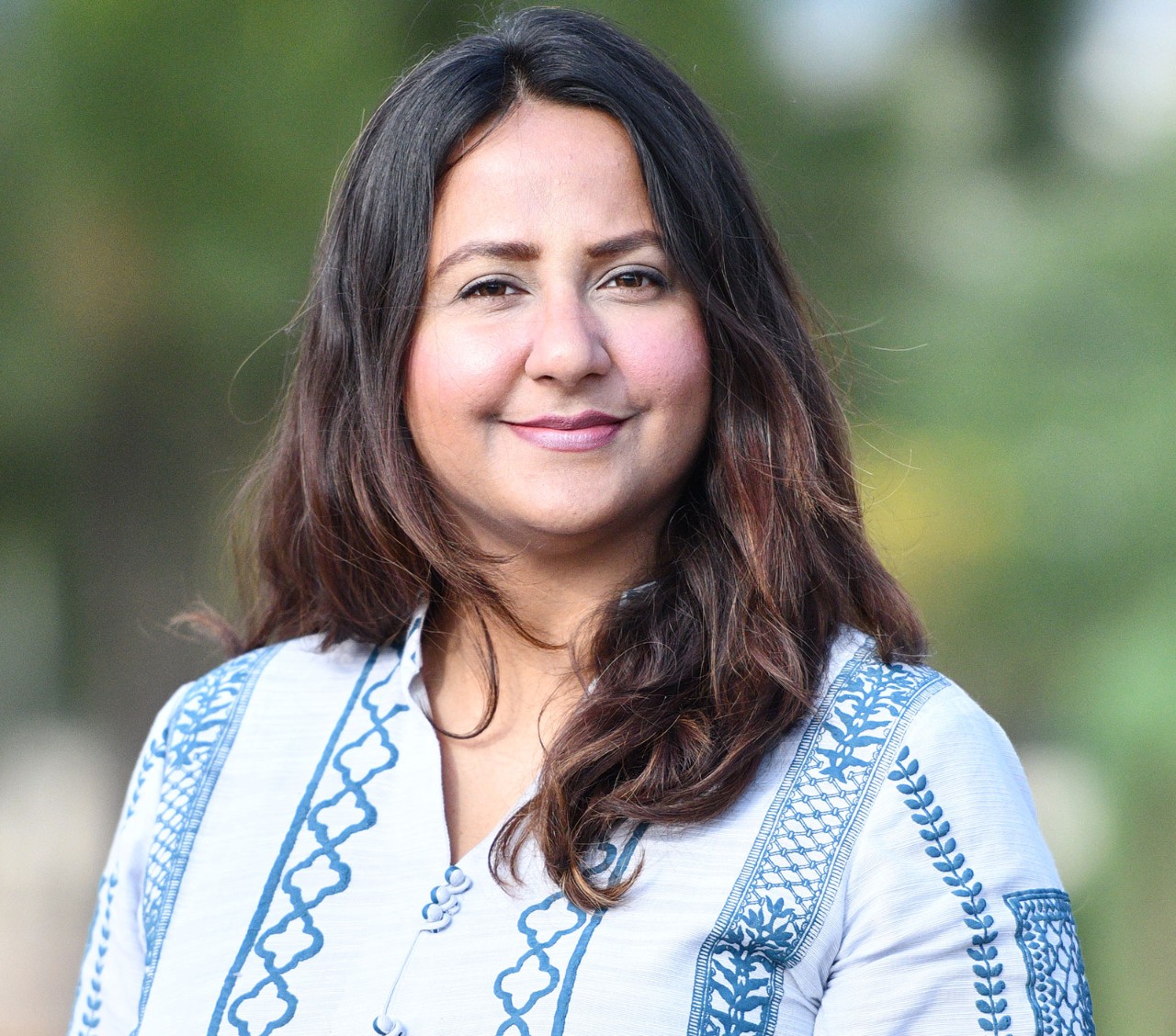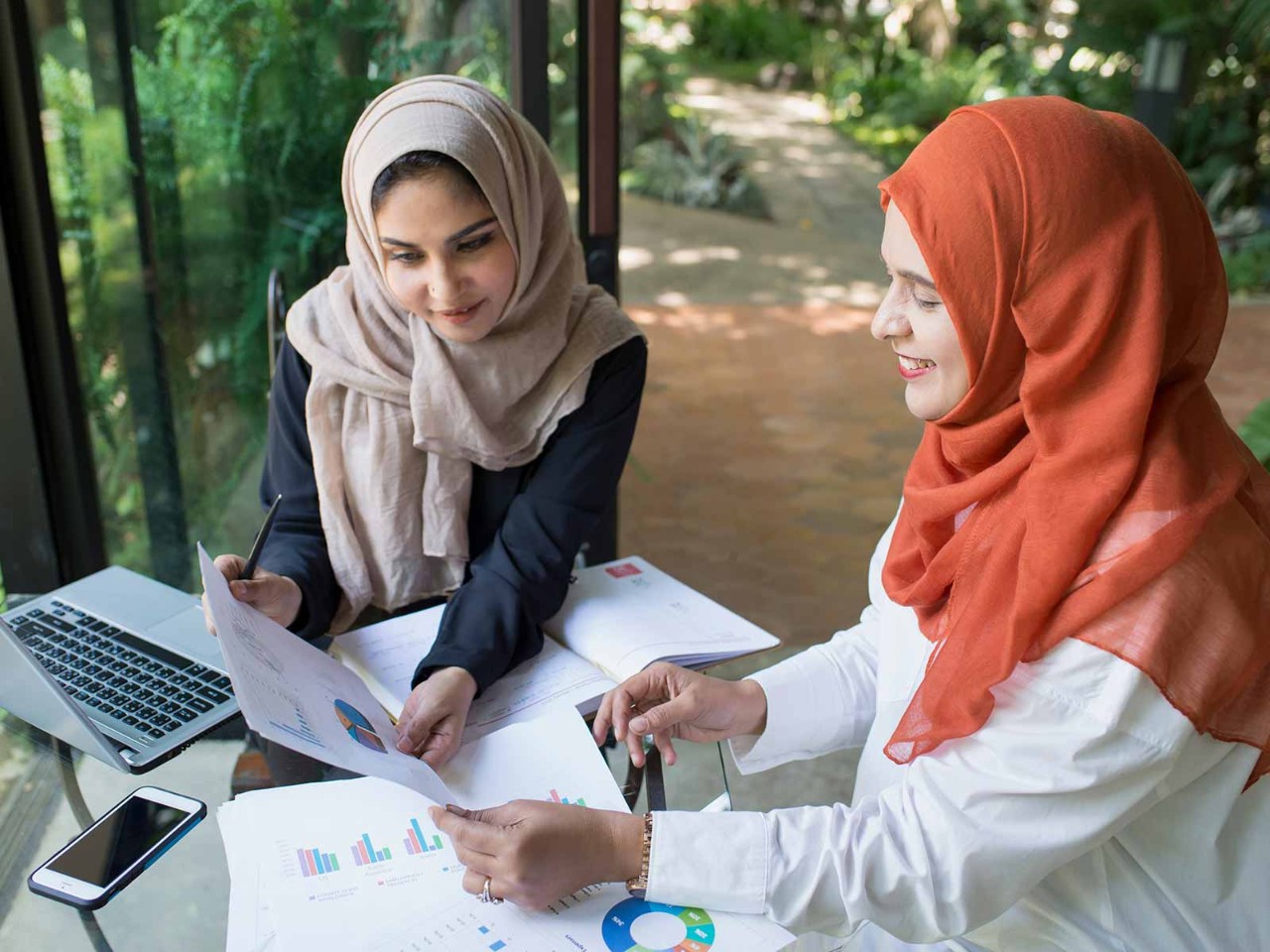
Women in Saudi Arabia are taking up professional roles unimaginable a few years ago, and accounting is no exception. As the government seeks to fulfil a principal aim of Vision 2030 – to create a more diverse and sustainable economy that enables all citizens to reach their fullest potential – increasing the proportion of women in the workforce to more than 30% has become an important step.
Since Vision 2030’s 2016 launch, women have been allowed to start their own businesses, travel abroad without a guardian's permission and – crucially – drive, increasing their access to work and workplaces. The result is a remarkable increase in Saudi female participation in the workforce, up from 19% in 2016 to 33% in 2020, according to the statistics authority’s Labor Force Survey.
‘The private sector, including the Big Four, should be actively recruiting equal numbers of men and women’
The move suggests a positive outlook for women seeking a career in the accounting profession. Reem Othman AlJuaythin, a financial analyst at national body the Saudi Organization for Certified Public Accountants (SOCPA), notes that while Saudi women have been present in the accounting and auditing fields for more than two decades, only in recent years have they been promoted to executive levels.
‘Accounting and finance are among the most sought-after specialisations under Saudi Vision 2030,’ she explains. ‘As a result, many Saudi women are choosing a career in this area.’
Training initiative
In another sign of the government’s commitment, earlier this year SOCPA introduced a new accountancy programme to encourage women to join and develop careers in the profession, supported by the ministry of commerce. Under the initiative, SOCPA will collaborate with Saudi universities to help more female accounting students benefit from its programmes.
The Future Women Society, established in October 2020 to raise awareness about the role of Saudi women in the society and economy, is also playing a part in this national accounting drive. It will work with the Saudi Financial Association (SFA), an independent body that advises government and business on developing the financial sector, to design training programmes for women interested in accounting and finance.
AlJuaythin has high hopes for the outcome. ‘With this initiative, we believe we will see more great female leaders in accounting,' she says.
Increasing employability
Fazeela Gopalani, ACCA’s head of Middle East, sees the SOCPA development as a significant step in the right direction. However, to improve the readiness of women to take on accountancy roles, she believes that there needs to be a government-led ‘train-to-employ’ programme where females are placed into organisations’ finance departments to gain experience as financial professionals while undertaking their training. ‘This would help them secure better jobs later on,’ she says.
‘I also think there should be a quota system in Saudi organisations, especially government entities, where they need to have diversity and inclusion and a certain percentage of women in the finance function,’ she says. ‘The private sector, including the Big Four, should be actively recruiting equal numbers of men and women.’
One segment where the presence of Saudi women has been particularly limited is in auditing, says Khaled Bahjatt, a certified accountant and partner at Mohammed Fida Bahjatt CPAs and Consultants, based in Jeddah.
‘The audit profession can be very demanding during the busy seasons, requiring auditors to work in different locations and meet clients in their offices or on construction sites,’ he says.
‘Getting around wasn’t easy for women before they were allowed to drive. In addition, many companies did not have segregated facilities. Today, however, most companies have women at work and so are more ready to accommodate female auditors.’
Better standing
Another reason why ambitious women have not historically been attracted to accounting roles is that these were undervalued in comparison to other executive functions, but that perception is changing. ACCA chief executive Helen Brand observes: 'People are increasingly seeing finance and accountancy as the backbone of business. This is attracting more people into the profession, including women.'
Gopalani agrees the environment has evolved. Saudi women increasingly regard accounting as a route to advancement in business generally, she says, thanks to its wide application across different disciplines and sectors.
‘Speaking the financial language can actually help you become the CEO of an organisation,’ she says. ‘Graduates are recognising this and as a result the profession is becoming more popular as a career. Salary brackets have grown exponentially as well.’
Wider collaborations
ACCA has already taken an active role. As well as working closely with SOCPA, developing thought leadership and knowledge and raising the professional standards of accounting students and accountants, it has been collaborating with educational institutions across the country. These include Princess Nourah Bint Abdul Rahman University, a major women’s university, where it offers short courses to accounting and finance graduates. Today, 35% of ACCA students in Saudi Arabia are women.
Meanwhile, KPMG has been hiring women accountants since 2007 and appointed its first female partner in the kingdom in 2017. Today, nearly 22% of KPMG’s employees in Saudi Arabia are women, 13% of them in accountancy roles. The company plans to increase the overall percentage of female employees to 25% by the end of 2021.
‘KPMG in Saudi Arabia has female accountants in different functions and branches. We have an active committee for our female colleagues, with recurring events and monthly “lean-in circles”, where an open discussion platform is provided,’ says Dr Abdullah Hamad Al Fozan, chairman and senior partner at KPMG Saudi Arabia and an SFA board member.
For Brand, the future of women in Saudi Arabia’s accountancy profession looks bright. ‘A lot of initiatives are happening across the business landscape, and it certainly makes economic sense to empower women to make – and spend – their own money.’



